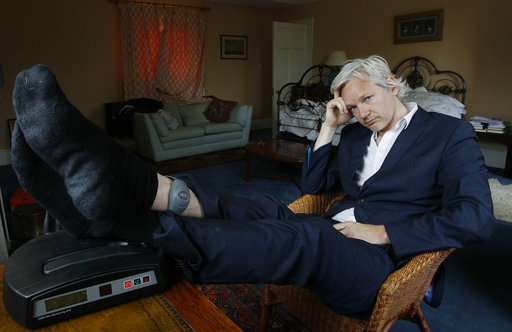Julian Assange is the founder of WikiLeaks, an international non-profit organization that publishes leaks from across the globe.
In May 2019, the U.S. government charged Assange with violating the Espionage Act of 1917. On June 25, 2024, he pled guilty to a single felony charge of conspiring to obtain and disclose national defense information. He had spent the previous five years in a British jail and, after the plea, was allowed to return home to Australia.
The controversy began in 2010 when WikiLeaks started publishing a series of leaked information about the United States and military operations that it received from former U.S. military intelligence analyst Chelsea Manning. Manning, then known as Bradley Manning, provided WikiLeaks with thousands of sensitive military documents – some classified documents and some unclassified. (Manning served seven years in prison for violating the Espionage Act before President Barack Obama commuted her sentence. In 2019, Manning refused to testify before a grand jury about Assange.)
WikiLeaks exposed spying, U.S. actions in wars
Some of the material released reflected poorly on the U.S. and its allies during its wars in Iraq and Afghanistan, such as one video showing a 2007 U.S. helicopter attack that killed a dozen people in Baghdad, including two Reuters news staff.
WikiLeaks also published more than 250,000 diplomatic cables from more than 250 U.S. embassies, which exposed the U.S. secret intelligence campaign to spy on European Union leaders.
The leaks also revealed the identity of civilians in Afghanistan and Iraq who were secretly passing information to the U.S. military, opening them up to reprisals.
P.J. Crowley, the State Department spokesman when the WikiLeaks story erupted in 2010, has said those most at risk were civilians in Afghanistan and Iraq who were secretly passing information to the U.S. military.
Concern about using Espionage Act to punish publishing
After Assange was indicted, several media organizations raised First Amendment free press concerns as he was being punished for something akin to investigative journalism — publishing truthful information about the government.
The Reporters Committee for Freedom of the Press analyzed the government charges against Assange and noted that the government has only twice before brought Espionage Act charges against non-government third parties.
Gabe Rottman, writing for the Reporters Committee, expressed concern that three of the charges were exclusively for publication of government secrets, an issue surely to concern journalists who publish classified information that they receive lawfully, such as what happened in the Pentagon Papers case.
“This is the first time the Justice Department has ever successfully obtained an indictment from a grand jury with Espionage Act charges based exclusively on the act of publication (what we’re calling ‘pure publication’ as it is distinct from either conspiring with a source or aiding and abetting the illegal acquisition of classified information),” Rottman wrote.
Assange's case could create 'chilling effect' for journalists
Assange’s lawyer, Jennifer Robinson noted that the guilty plea brought to an end “a case that has been recognized as the greatest threat to the First Amendment in the 21st century.”
Charlie Savage, a journalist with The New York Times who has written about Assange since 2010, wrote that a potentially bigger threat was dodged when Assange agreed to a plea deal, rather than escalating the case to the U.S. Supreme Court. But the outcome sets a “chilling precedent” for national security journalists “who may be chilled in how aggressively they do their jobs because they will see a greater risk of prosecution,” he wrote.
Jameel Jaffer, executive director of the Knight First Amendment Institute at Columbia University, said the outcome “will cast a shadow over press freedom — but not the same kind of a shadow that would have been cast by a judicial opinion holding that this activity is criminal and unprotected by the First Amendment.”
Assange is not a United States citizen. The First Amendment provides protections for speech and publication, but whether Assange could have successfully invoked free press rights as a defense was in contention.
Assange pled guilty to receiving, obtaining military secrets
Assange made his guilty plea in a court in Saipan in the Mariana Islands, a U.S. commonwealth, avoiding coming to the mainland United States because he was concerned he would not be allowed to leave. He pled guilty to receiving, obtaining and publishing U.S. military secrets, in violation of the Espionage act of 1917.
The courts honored Assange’s time served which means he will face no further jail time for the leaked documents.
Assange remains under investigation by the Swedish government on alleged rape charges, which were dropped in May 2017, but have since been reopened.
Assange and WikiLeaks have also been controversial for releasing other sensitive information. During the 2016 presidential election, it published hacked emails from the Hillary Clinton campaign team.
Assange became a computer expert and involved in hacking in his teen years. He was born in 1971 in Queensland, Australia and eventually studied at Central Queensland University and the University of Melbourne but did not graduate. He worked as a computer programmer and as an advisor to an Internet service provider. He started WikiLeaks in 2006.
David L. Hudson, Jr. is a law professor at Belmont who publishes widely on First Amendment topics. Noah McClane is a journalism student at Middle Tennessee State University.

